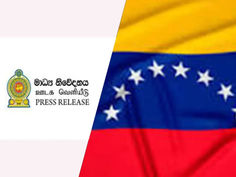BBC Analysis Raises Questions Over Elon Musk's 'Doge' Cost-Saving Claims
- Rahaman Hadisur
- Apr 27, 2025
- 3 min read
Hadisur Rahman, JadeTimes Staff
H. Rahman is a Jadetimes news reporter covering Business.

Elon Musk’s Department of Government Efficiency (Doge), a newly established agency aimed at reducing U.S. government spending, claims it has saved the federal budget more than $10 billion a week since President Trump took office.
Speaking to the BBC on April 23, President Trump praised the initiative, stating, "We're talking about almost $200 billion and rising fast," referencing Musk’s cost-cutting drive. According to Doge’s official website, the agency focuses on cancelling contracts, grants, and leases from previous administrations, addressing fraud, and reducing the federal workforce.
However, a detailed analysis by BBC Verify reveals significant discrepancies behind Doge’s reported figures, raising concerns about the transparency and accuracy of its savings claims.
Lofty Promises, Limited Evidence
In October 2024, Musk pledged to cut "at least $2 trillion" from the federal government’s spending. That goal was later revised down to $1 trillion. As of April 20, Doge’s website claims $160 billion in estimated savings but less than 40% of that total is broken down into individually documented cases.
A BBC Verify investigation found that among the itemized savings listed, only around half included any supporting documents or evidence. Even among those that provided receipts, inconsistencies and questionable accounting methods were uncovered.
U.S. media outlets have previously highlighted similar issues, including an $8 billion savings claim that, upon review, involved cancelling a contract worth just $8 million.
Doge has acknowledged the gaps, stating it is "working to upload all receipts in a digestible and transparent manner." As of April 20, receipts supporting about 30% of total claimed savings were available on its website. Some receipts, it says, are unavailable "for legal reasons."
Examining the Largest Claimed Savings
BBC Verify scrutinized Doge’s four largest reported savings, which the department says total $8.3 billion. After consulting federal contracts experts and reviewing government databases, the analysis found that the actual savings are likely far lower.
Child Migrant Facility in Texas – Claimed Saving: $2.9 Billion
The largest individual saving comes from cancelling a contract for a Texas facility intended to house up to 3,000 unaccompanied migrant children. Doge’s $2.9 billion figure is based on the contract’s maximum potential value through 2028.
However, experts note that the contract was renewed annually and not guaranteed through 2028. A source familiar with the contract told the BBC that "real, documentable savings" from the cancellation were closer to $153 million, based on fixed monthly costs and the period from February to November 2025.
The source emphasized that actual costs would have depended on fluctuating migrant numbers and the facility never reached its full capacity.
IRS IT Contract with Centennial Technologies – Claimed Saving: $1.9 Billion
Doge also claims a $1.9 billion saving from cancelling an IRS IT contract with Centennial Technologies. Records show a total contract ceiling value of $1.9 billion, but $0 is recorded under actual spending.
Experts, including David Drabkin, a former federal procurement official, caution that government spending databases often have delayed or incomplete entries. Furthermore, the contract was reportedly cancelled during the Biden administration, prior to Musk’s intervention.
Department of Defense IT Contract – Claimed Saving: $1.76 Billion
Another significant saving comes from a cancelled Department of Defense IT contract with A1FEDIMPACT. Again, while the total contract ceiling was listed at $2.4 billion, there’s no record of money spent.
Doge’s claimed $1.76 billion saving remains unclear, with no detailed breakdown or supporting documentation provided. Requests for comment from the Pentagon and the contractor remain unanswered.
USAID Grant to Gavi – Claimed Saving: $1.75 Billion
Doge asserts it saved $1.75 billion by cancelling a USAID grant to Gavi, a global health organization. However, records from USASpending.gov show that $880 million had been paid and Gavi told the BBC that it had not been notified of any termination.
No evidence supporting the $1.75 billion figure has been found.
Experts Urge Caution
Federal procurement experts warn that using maximum contract values to estimate savings can be misleading. Contracts often include "ceiling" values that are rarely, if ever, fully spent.
"FPDS [the Federal Procurement Data System] does not reflect the actual paid price until well after completion," said David Drabkin. "Initial figures represent potential, not reality."
The Department of Government Efficiency has yet to respond to detailed questions regarding its methodology.
Meanwhile, Musk has announced he will scale back his involvement with Doge to focus on Tesla and his other ventures, following a significant drop in Tesla's quarterly profits.
While Elon Musk’s Doge agency has made bold claims about saving American taxpayers billions, BBC Verify’s investigation reveals that many of the figures are based on speculative estimates rather than verifiable savings.
As scrutiny increases, the real impact of Doge’s operations on U.S. federal spending remains uncertain raising important questions about transparency, accountability, and the true scale of government cost-cutting efforts.







































